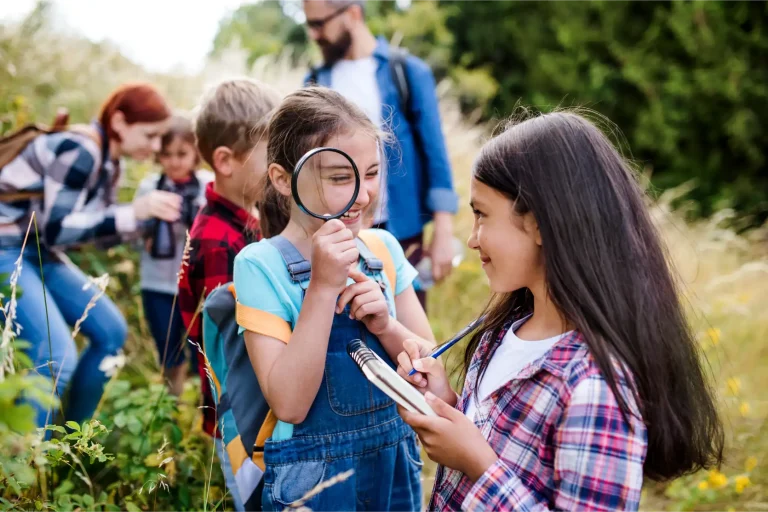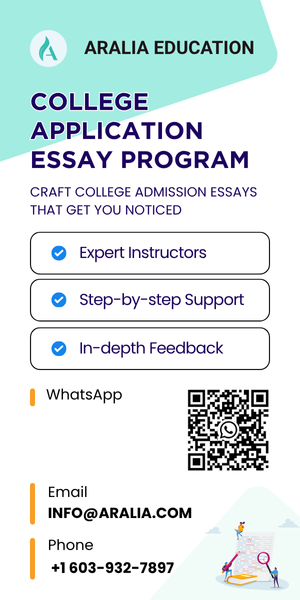Aralia Students Are 4x More Likely to Publish a Research Paper
British statesman Winston Churchill wrote, “Those that fail to learn from history are doomed to repeat it.” The study of history doesn’t immediately generate results like the improvement of subway systems or a decrease in homeless people. Still, history provides strong connections to the past and the foundation for all further advancements. History provides stories that inspire future engineers and scientists, lessons people learn from, the basis for the identity of a country’s existence, and so much more. Below are the five reasons why students should study History during K-12 education, in college, and more!
1. Study History will provide information about world culture
In addition to US History, schools also promote the study of World History and European History. Understanding how past societies, governments, and ideologies operated helps us understand the formation of culture in various countries. Have you ever wondered why cars in Britain and many of its former colonies drive on the left while other parts of the world drive on the right? Understanding these small nuances between countries helps you be informed about the country’s culture, how it previously was, and how it has changed. Learning history and being aware of world history provides an understanding of the world, an easier transition when you travel to a new country, and familiarity with people in that country.
2. History educates about changes
The study of history helps us understand and be educated about changes. History is everywhere, from the water we drink to the fruit we eat. For instance, we all know how popular avocado is now in America. Even though avocados are supposed to grow only in tropical or warm weather, we have a surplus supply of avocados all year long due to imports from Mexico and other neighboring countries. However, with the increase in demand for avocados, the avocado supply has become part of the cartel’s leverage in Mexico, which is being called “The Avocado War.” Being aware of the history of avocados and how the avocado has changed an additional part of Mexico to be leveraged by cartels, we will be able to raise our voices and influence changes in society.

3. The past teaches students about the present and the future
Since history is the record of historical events from the past, students are equipped with tools and knowledge to analyze and explain problems that occurred in the past and then to identify patterns that might be visible in the present and future. This method of studying history is also applied to the study of finance and business analytics. A company’s potential growth and development are identified by analyzing past growth, assets, and liabilities. Studying the past provides a crucial perspective for understanding and solving current and future problems.
For example, a course on the history of public health might emphasize how environmental pollution disproportionately affects less affluent communities – a significant factor with Formosa Plastics, the world’s largest plastic producer, and the environmental issues surrounding its factory in Point Comfort, Texas.
4. History shapes identity
Studying history helps shape human experience and understand the different identities of families, groups, institutions, and entire countries. You must have heard about collectivism in Eastern countries and individualism in Western countries. Studying history explains how you have become you of today through the theory of evolution and the creation of tribes and groups.
The book Sapiens: A Brief History of Humankind is the #1 international bestseller, where Yuval Noah Harari, a historian, integrated history and science in explaining what it means to be “human” from the core to what it means to be “human” among other “human.” Learning history gives people a stronger sense of identity within themselves, family, group, and country.

Enhance Your Research Skills with Aralia’s Research Scholar Classes
5. History builds empathy
Apart from studying your country’s history, historical study about other cultures helps people become aware and appreciative of different cultures, ideas, and traditions. The past is evidence in our quest to understand why people behave in a particular manner. History provides a glimpse into other cultures that are not our own and how they have struggled to maintain their beliefs and fight for their country’s or region’s independence. In the melting pot of differences, being aware and appreciative of other cultures helps us stand by their side, become their ally, and provide support when needed.
History is everchanging, and you are part of the history of today, which your future children and grandchildren will read about in their history classes. We live in the present and long for the future, but we should use the past as a reflection to make changes in our actions for the present and future. History is an exciting and valuable subject in school that students should learn and understand.
For us, Aralia is built upon learning about the history of students’ performance in online education and being aware of the gap between students’ in-class achievements and online learning. Upon reflection of the history of the past, passionate engineers and educators explored the potential to deliver a program that blends traditional curriculums with personalized teaching guidance through online learning. Aralia’s history tutors are inspired teachers and professors committed to student success. They are recognized in their field or teaching at top US high schools and colleges/universities.
In AP United States History (APUSH), students will review key content concepts and course objectives found in the APUSH course description through writing long essay questions (LEQ), document-based question essays (DBQs), and short answer questions (SAQs). Furthermore, students will practice using historical thinking skills tested on the exam by answering stimuli-based multiple-choice questions and through their written responses.
Through Historical Research and Writing, students will learn about choosing a topic, composing research questions, effective research methods, drafting, composing, and revising. These skills will be taught with an emphasis on historical research, allowing students to engage in analysis of primary and secondary sources, discover interesting insights in history, and partake in the active pursuit of understanding the importance of the historical study.
In this course, we will cover a period from the height of Ancient Greece to the middle of the sixteenth century, as we study the emergence of the first civilizations around modern day Europe and the trajectory of their development into Western society. We will examine the contributions of Greece and Rome and how they expanded their empires; how ideas are conceived, put into practice, and have social consequences; how and why their empires collapsed; how people and societies existed during the Middle Ages; how numerous cultures developed values and coexisted/clashed with others; and how a broken Europe, after several starts, reinvigorated itself with the Renaissance, and split again in the Reformation.
This course will allow students to discover important moments in World History while developing academic, writing, and communication skills. By studying, reading, and writing about World History, students will gain a better understanding of how the modern world came to be and how past events dictate current ones.
Explore the rise and fall of empires, the clash, and encounter of cultures, plagues, religious fervor, and political intrigue and war. This course aims to discover the complex interactions between Native Americans, Europeans, and Africans in different regions of North America across more than 500 years of history.











